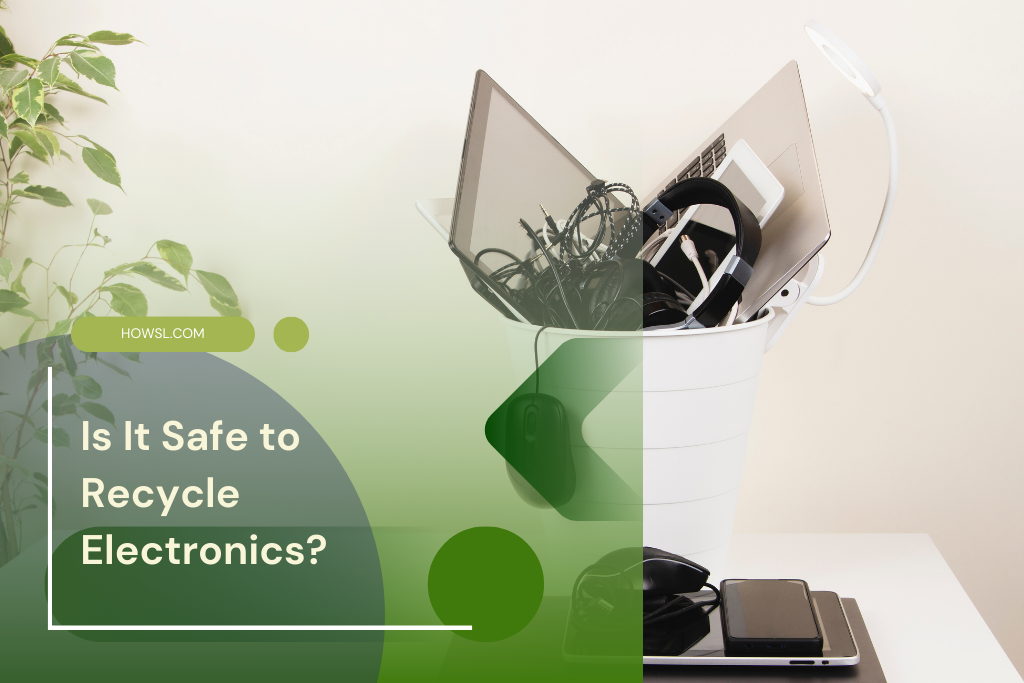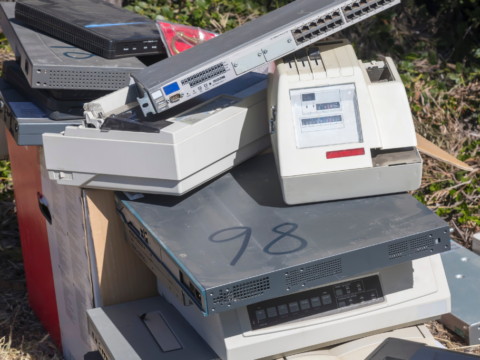H3: Finding a Responsible E-Waste Recycler
Recycling electronic waste, often termed as e-waste, is imperative in protecting both the environment and human health. However, not all recyclers embrace ethical and responsible recycling strategies. Engaging with a responsible e-waste recycler requires diligent research and careful assessment. It is important to understand that a responsible recycler should carry appropriate certification, such as R2, e-Stewards or ISO 14001 certifications. These qualifications signify their commitment to environmentally friendly procedures and adherence to prescribed safety measures.
Moreover, it’s beneficial to delve into their recycling procedures. Some recyclers use prison labor or outsource recycling overseas, which may result in poor environmental practices. Others may shred electronic devices, a process that makes it impossible to recover and reuse usable parts, and contributes to environmental degradation. Thus, recognizing these nuances in recycling practices is key in distinguishing responsible recyclers. Employing online research tools, asking for referrals, and speaking to the recyclers directly can be effective methods to assess their responsibility towards both e-waste and the broader environment. Through these steps, individuals can ensure that they are contributing to sustainable e-waste management.
H2: Government Regulations on Electronic Waste
With the rapid evolution of technology comes the increasing generation of electronic waste, or e-waste. Given the potentially harmful materials contained within these devices, including lead, mercury, and other heavy metals, proper disposal is of paramount importance. In response to this, governments across the globe have enacted regulations to govern the recycling and disposal of e-waste.
These regulations serve multiple objectives. Firstly, they aim to reduce the volume of e-waste that ends up in landfills, through encouraging recycling and proper disposal methods. Additionally, these laws work to prevent the illegal dumping of e-waste, which can have dire environmental and health consequences. They also institute procedures for the safe handling of e-waste to protect workers in the recycling and disposal industry. Above all, these governmental regulations seek to foster a more sustainable use of electronic goods, steering society towards a circular economy model where resources are reused rather than discarded.
H3: Existing Laws on Electronic Waste Disposal
Several countries and states around the world have already put into effect various regulations concerning the responsible disposal of electronic waste, often referred to as e-waste. Detailed and extensive, these laws are primarily designed to reduce the adverse environmental impact of incorrectly disposed e-waste. They seek to encourage and enforce the correct disposal methods, reusing and recycling procedures, aiming to minimize the amount of new electronic equipment manufactured.
In the United States, 25 states have passed legislation mandating statewide e-waste recycling. They provide multiple collection systems such as permanent collection centers, special events, or curbside pickup. Meanwhile, countries such as Switzerland, Netherlands, and Japan have enacted stringent laws pertaining to e-waste management. They drive their citizens and businesses towards not just legally compliant but environmentally conscientious e-waste practices. From a global viewpoint, legislation such as the Basel Convention intends to control transboundary movements of hazardous wastes and their disposal, protecting weaker economies from the burden of hazardous waste generated by technologically advanced countries.
H3: Penalties for Non-compliance
The legislative landscape for electronic waste disposal is largely marked by strict regulations and severe penalties for non-compliance. Implemented to ensure responsible e-waste recycling, these penalties serve as a deterrent for illegal or irresponsible disposal methods. The cost of these penalties can vary widely across different regions and countries, however, they often involve hefty fines and can sometimes even lead to prison sentences.
Regulating bodies conduct frequent inspections and audits of e-waste disposal facilities to ensure their compliance with the laws in place. Any violation found during these examinations can lead to immediate penalties. Furthermore, some laws also hold producers responsible for the end-of-life management of their electronic products, meaning they might also face penalties if their products are found to be improperly disposed of. Thus, understanding and observing all relevant legal requirements is paramount for both e-waste producers and recyclers.
H2: Making a Difference: Individual’s Role in E-Waste Management
The global issue of electronic waste, or e-waste, has been magnified by rapid technological advancements and the incessant consumer demand for latest gadgets. However, improper disposal of these out-of-date products can result in deleterious environmental consequences, bringing the role of the individual into sharp focus in combating this issue. By acknowledging the magnitude of the problem and making conscious decisions, each person can contribute significantly towards responsible e-waste management.
An individual’s responsibility in managing e-waste begins with practicing the ‘Reduce, Reuse, Recycle’ mantra. This includes purchasing products with a long-lasting lifecycle, repairing and reusing electronic equipment where feasible, and most importantly, ensuring that obsolete devices are recycled in an environmentally-sound manner. Furthermore, individuals should be aware of and leverage local government regulations and certified e-waste recyclers in their area. This will ensure that discarded electronic products are recycled or disposed of in compliance with the established environmental standards, reducing the risk of associated harmful impacts. With each person playing their part, significant strides can be taken towards achieving sustainable e-waste management.
What is the importance of finding a responsible E-Waste Recycler?
A responsible E-Waste Recycler ensures that electronic waste is disposed of safely, without causing harm to the environment or human health. They adhere to proper recycling methods, ensuring the maximum recovery of valuable materials and the safe treatment of hazardous substances.
What are the government regulations on electronic waste?
Government regulations on electronic waste may vary depending on the region. However, they typically focus on the safe disposal of e-waste, promote recycling and reuse of electronic items, and set standards for e-waste management practices.
Can you briefly explain the existing laws on electronic waste disposal?
Existing laws on electronic waste disposal mainly focus on preventing illegal dumping and promoting environmentally friendly disposal methods. They may require manufacturers, retailers, and recyclers to take back electronic products at the end of their life cycle. The specific regulations can vary greatly depending on the country or state.
What are the penalties for non-compliance with e-waste disposal laws?
Penalties for non-compliance with e-waste disposal laws can include fines, jail time, and the suspension or revocation of business licenses. The severity of the penalties often varies depending on the nature of the violation and the jurisdiction in which it occurs.
How can an individual make a difference in E-Waste Management?
Individuals can make a difference in E-Waste Management by properly disposing of their electronic waste, not throwing it in the trash, and instead taking it to a certified recycling facility. They can also choose to buy less, reuse more, and opt for products with environmentally friendly design. By spreading awareness about the harmful effects of mismanaged e-waste, individuals can also influence their community’s attitudes and behaviors towards e-waste.


